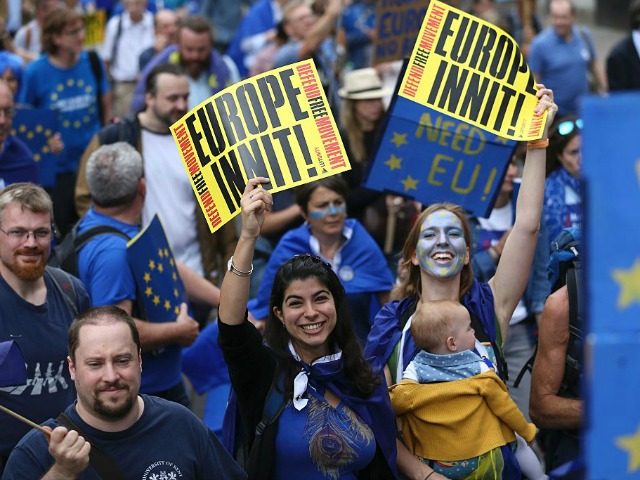Brussels must work with the media to fight populism and promote the EU, the director of the world’s largest Spanish-language news agency has said in an interview with EurActiv.
EFE director José Manuel Sanz Mingote said the global media has a responsibility to counter populism after the electoral victories of Brexit and Donald Trump.
Mingote said the media should construct a unified “European public opinion” that serves to build popular support for the European Project, a process often characterised as the march towards a continental superstate.
Brussels is failing to take this need seriously, the Spanish media boss argued, telling EurActiv: “[EU bodies] don’t realise that the European project needs a European public opinion … They have to see a little further and visualise the global European picture.”
As well as funding projects to boost their image, Mingote said EU bodies should “provide legal support to the media so they can enlarge their audiences and compete with powerful actors like the Anglo-Saxon global agencies, aggregators and new tech actors.”
But the EFE director stressed that news agencies and companies have a “special role” to play in building support for globalism, explaining that the media has “societal obligations to be specialised in factual information, a key element in the battle against populist intoxication and bad journalism.”
Outlining how a “European media strategy” should look, Mingote said Brussels should outsource its public relations to media companies rather than “trying to create its own” image-boosting organisation.
With a view to elections due to take place in several countries in Europe this year, and the European Parliament elections in 2019, Mingote said the media must work proactively to counter populism, explaining that it’s vital they reach out to and engage with young audiences.
“We have to be active in this process [of fighting populism], and we have to connect with young people because they are the key to stopping this wave of populism and extremism. At EFE, we are very much interested in young audiences, in fact we are now debating how to enlarge our content in order to be more attractive to them.”
Mingote dismissed interviewer Christophe Leclercq’s concern that collaboration between EU bodies and media corporations to “combat populism” could ‘taint’ the image of news providers as driven by a “mission of neutrality”, arguing that the EU itself is impartial and has no interest in skewing news narratives.
“We consider that the European institutions are also neutral. They have communication policies and messages but I feel that they are not interested in manipulating content. So if they let journalists report freely, they will benefit from this coverage because the information will reflect the reality and the preoccupations of the people,” the Spanish media boss said.
“Brexit has shown us that the worst-case scenario could happen”, Mingote said in response to Leclercq noting that EU bodies aren’t considered to be neutral in the UK. The EurActiv founder pointed out it’s widely thought that this perception is responsible for having “limited the initiatives” Brussels has taken in the area of media self-promotion.
Britain’s vote to leave the EU serves as a stark indicator of the need for Brussels to “wake up and realise that the European project needs help and that the media can provide it, if we are free to do what we know,” the EFE director warned.
The EU spends £2.3 billion a year on promotional material, much of which is aimed at children and to fund groups that extol the benefits of a “United States of Europe” a report in 2008 found.
The authors concluded the campaigns were “geared not towards providing neutral, balanced information, but towards trying to convince people to support EU integration”.
The European Court of Justice ruled in 2001 that it’s legitimate for Brussels to suppress criticism of its institutions and leading figures, the court ruling it legal for the EU to punish individuals who “damaged the institution’s image and reputation”.
In 2013, The Telegraph revealed that Brussels, angered by the British media’s coverage of the EU, had been pouring millions of pounds into organisations that advocate state control of the press, in particular with a view to muzzle newspapers politically on the right.

COMMENTS
Please let us know if you're having issues with commenting.